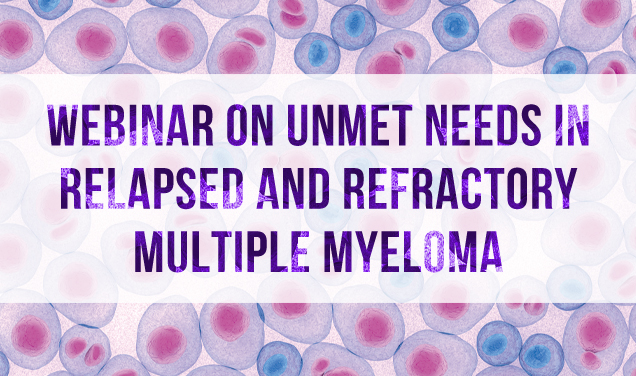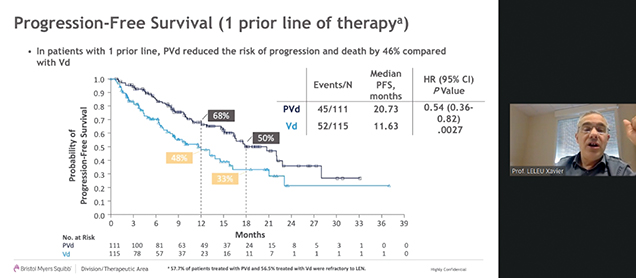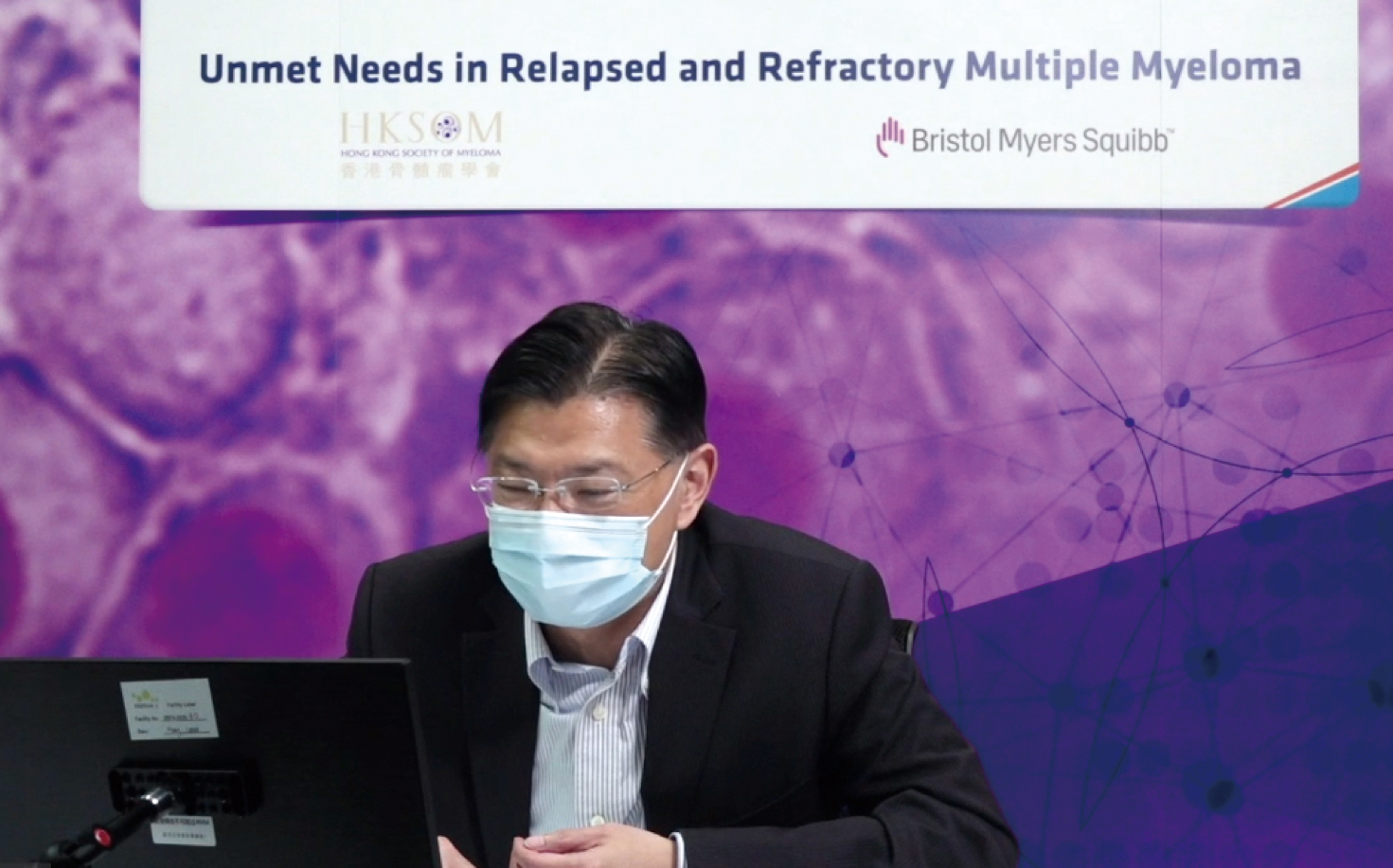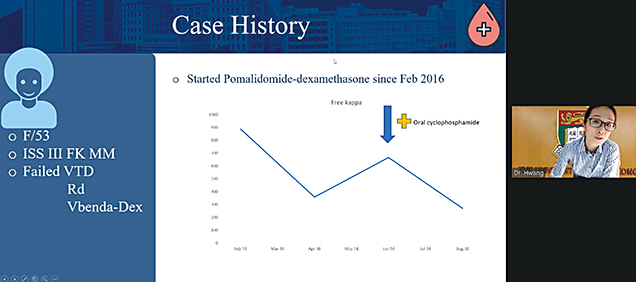
Over the past 25 years, significant progress has been made in the treatment of multiple myeloma (MM) as reflected by the improved overall survival (OS). However, in relapsed and refractory MM (RRMM), median OS decreases with each extra line of therapy. Thus, novel strategies for improving survival of RRMM patients are desirable. Notably, the development of immunomodulatory drugs (IMiDs) in recent decades has significantly improved the outcomes of patients with RRMM. In the webinar titled “Unmet Needs in Relapsed and Refractory Multiple Myeloma” organised by the Hong Kong Society of Myeloma on 27th April 2021, Prof. Xavier Leleu of the Department of Haematology at Hôpital La Mileterie shared his insights in managing RRMM with IMiDs and Dr. Gloria YY Hwang of the Department of Medicine, University of Hong Kong shared the clinical outcomes of a RRMM patient treated with pomalidomide-based therapy.
In the event, Prof. Leleu outlined the poor prognosis in patients refractory to CD38-targeting monoclonal antibodies, proteasome inhibitor and IMiDs. He further presented the clinical efficacy of lenalidomide-based regimens in managing MM. Essentially, he described the promising efficacy of pomalidomide-based therapy in lenalidomide refractory patients. The presentation was followed by Dr. Hwang’s case sharing. The case history of the RRMM patient demonstrated the long-term benefit of pomalidomide-based therapy. After the informative and enlightening presentations, there was a fruitful discussion among the keynote speakers and local clinicians on the management of RRMM.


Prof. Leleu presented the efficacy of pomalidomide-based therapy in RRMM

Discussion session was moderated by Prof. James Chim

Dr. Hwang presented the case history of her patient with RRMM





